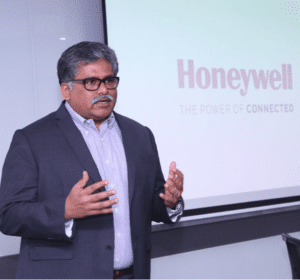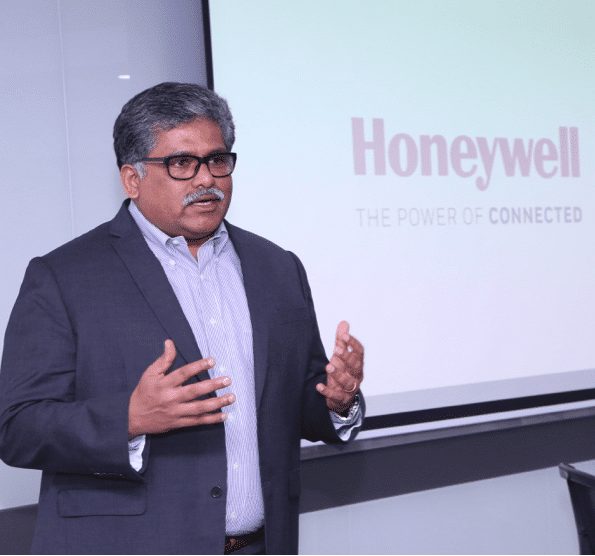Internet of things (IoT) is not a mere buzzword in India anymore. From smart homes to digital payments we see IoT being implemented in almost every industry. But there are many challenges being faced by these industries especially with the increasing demand for connectivity and need to secure data in every step. To understand this better Ankita KS from EFY had an interaction with Akshay Bellare, vice president and general manager, Honeywell Technology Solutions, India.
Q. As a solution provider, what do you think are the major points to consider while designing the IoT solutions?

A. The first challenge is to understand the right customers, if not we end up with solutions that nobody cares about. Earlier, the product was always built first and then the customers buy them according to their needs. Now with everyone pivoting towards IoT, it is more about the right solutions. Having the good understanding of the customer needs is the most critical part today.
The second thing is being aware of potentially disruptive technologies. Ten years ago, disruptions were not that easy, but today with digital transformation, it is becoming a lot simpler. Initially, it was all about hardware and very little software, then came the hardware and embedded software. Now it is hardware, embedded software and data and this data bubble are getting bigger and bigger. Today, it is easier for somebody who doesn’t understand the domain to come up with a software capability and drive insights. So, to understand disruptive technologies is another critical thing.
Q. How is this Digital Transformation progressing in India?
A. With the digital India initiative, there is a lot of development happening in India. One big example is Aadhar authentication. No other country can say that they have biometric data of 1.2 billion people. So, digitisation is happening in India very rapidly through Make in India initiatives.
Q. Could you name a few industries that are adapting and growing with IoT on a vast scale in India?
A. In certain industries like oil, gas and aerospace, I see the IoT adaption is happening rapidly. For industries like autonomous vehicles, it would still take time but in smart cities and cashless payments we do see immense growth. Even in the United States, you need a credit card for any transaction but here I can order food using PayTm. Things are changing in India in a steady scale.
Q. Any example that you would like to share about Honeywell solutions that are impacting this growth?
A. In India, even though the labour is cheap, the maintenance cost is high. The best example would be the Honeywell’s Auxiliary Power Units (APU). Every aircraft has an auxiliary power unit that provides power when the jets are not running. Over 70% of APUs around the world are Honeywell APUs, including the one on the flight 1549 that Landed on Hudson river in 2009. Today with IoT, we are not only providing the APU but also provide the maintenance software. This software pulls the data from the APUs on a regular basis and performs analytics on it and proactively informs the aircraft maintenance crew about the health of the APU well ahead the crucial stage. So, there is no flight delay or risk of a defective APU and thus a lot of money gets saved. We have seen that this creates value for all airlines in India as well. So, there are some very specific areas where IoT is making a lot of sense.
Q. What are the major problems faced while deploying any IoT solution in India?
A. When you talk to the telecom guys, you see that they are struggling to keep up as the demand is increasing so much. Everyone needs more data, thus the bandwidth required is also high, this is one challenge from the IoT perspective. Also, when you provide an IoT solution, the bandwidth requirements keep going, this rises the concern of cybersecurity. So building a secure system is very important because if you do not have secure systems, there could be loss of the data hosted on the cloud and thus loss of customers.
Q. How is Honeywell tackling the IoT security issue?
A. When we talk about our offerings be it connected plants or connected supply chains, at the foundation of that, we have a big box named cybersecurity. Because without security the whole thing will collapse. So, we have embedded cybersecurity experts into every program. Because if we don’t have secure offerings, we lose our creditability, especially because the offerings are critically connected systems like defence, energy and aerospace. For us, cybersecurity is the foundation on which all the other systems are built.










